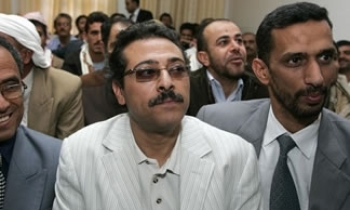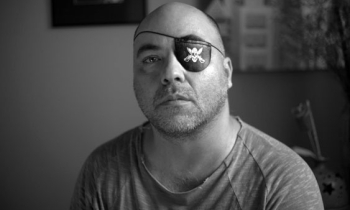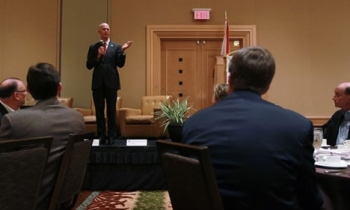"Today it is impossible to prevent publication," says the new president of the Israel Press Council, Dalia Dorner. "If newspaper A does not publish certain material, it will be published by newspaper B, and if not by newspaper B then on television, and if not on television then in a blog."
This was the former justice's response to the not-so-hypothetical question of how she would react if she found out a newspaper publisher were censoring an item due to his economic interests.
"There is a labor court ruling stating a person who owns a newspaper can publish whatever he likes in it," Dorner says. "In my eyes, that is a problematic ruling. I cannot oblige someone to put out a business page, but he cannot put out such a page and hide information. If a newspaper is not a niche publication but has pretensions of being a general-interest paper, and it intentionally blocks publication and thus delivers incorrect information, then this contravenes the ethics code, and it must be stated. I like having to enforce that, that is, freedom of expression. I want a whip in the name of freedom of expression."
If you had been council president when Keshet shareholders tried to block an investigative report by the "Fact" TV program about Israir, would you have protested?
"The Israel Press Council should have reacted then. After all, the idea is to protect freedom of the press wherever it is at stake."
Dorner, who until two years ago sat on the Supreme Court, was chosen to head the council a month ago. In her first comprehensive interview since assuming this position, she outlines her theories about the media and her plans for turning the council into a living, kicking body. She opposes legislation on journalism, she thinks the courts permit too many gag orders, she plans to get the electronic media to join the council and intends to conduct professional seminars for journalists.
Proof of the pudding
The council held its first meeting under Dorner last Wednesday. The new president, it transpires, was not impressed by the strident criticism leveled at the media, particularly at the TV stations, over their coverage of the second Lebanon war.
"In my opinion," Dorner told the council members, "while keeping with the ethical regulations and the censor's decisions, the media, even during an emergency, should hold a free debate and should even be critical. That is why in my eyes, information about the home front and the complaints of our soldiers was of the utmost importance, even if it could be argued that this encouraged the enemies.
"One must remember media outlets that refrain from passing on information present the public with a distorted reality, and in this way harm our democratic regime, for whom a free press is a vital part of its existence. It also leaves open the stage for the world media, which presents in a detached fashion the information our media outlets have embargoed."
Absent from last week's festive meeting were the representatives of Yedioth Ahronoth. The country's largest newspaper refused to allow a justice to head the council on the grounds that a judge would be able to act only in a formal juridic way. When the other council members refused to go along with this, and elected Dorner with a large majority, the Yedioth Ahronoth representatives decided to break ranks and leave.
"I hope that when the paper and its representatives have seen my actions, and realize they too are being defended, perhaps they will rejoin," she says. "As the saying goes: The proof of the pudding is in the eating."
Perhaps the Yedioth Ahronoth representatives viewed you as a strong, uncompromising personality, and it did not suit the paper's management to have such a person heading the council?
"I am not familiar with the ins and outs of the newspaper world, its milieu and gossip. I take things at their face value."
What importance is there to the fact that you plan to keep dealing with complaints against Yedioth Ahronoth even if the council has no authority over that paper?
"I can state that conduct of one kind or another by a paper was improper. True, we would not be able to publish that kind of decision in Yedioth, because they are no longer members, but Maariv and Haaretz would publish it."
In any case, Yedioth Ahronoth is not alone. Most of the media in the country, the electronic media for example, are not council members, and they do not appear to care.
"We are working toward getting Channel 10 news to join. Channel 2 news has almost reached an agreement on this with us, and we are holding talks with Channel 1. We are also meeting with [economic daily] Globes, and [free daily] Yisraeli has already joined."
Training for journalists
Dorner's election is supposed to breathe new life into the council. For the past two and a half years, since previous president Mordechai Kremnitzer left, the council had been almost completely paralyzed. This stemmed from the inability of council's three bodies - the representatives of the public, the publishers and editors, and the journalists' unions - to agree on a new president.
A week and a half ago, during a discussion at the Israel Democracy Institute, former justice and past council president Yitzhak Zamir defined the council as "a corpse."
Dorner refuses to get excited about his pathological observation.
"Apparently he had a very bad experience. I hope we will revitalize the council," she says.
For a long time now, the council has been considered a toothless body.
"We cannot impose any sanctions, other than publicizing violations. But in view of the media's fierce battle against this, it appears to be a very effective sanction."
Most journalists consider the council an archaic body. What do you plan to do to make it relevant?
"That is merely what you imagine. I recently read the doctoral thesis of journalist Yehiel Limor, who wrote about press councils throughout the world. From his comparative study, it transpires that to a large extent it depends who the chairman is, and this of course makes my job very difficult. I hope to be able to help first and foremost to rouse the council and to make the public aware of its role. It is important they know the body exists, is listening and is examining things. We will also organize good courses for journalists in various fields. It is not sufficient to formulate ethical codes; these must be taught and the journalists must be heard."
Do you really believe holding seminars for journalists will raise their regard for the council?
"Yes. One time I lectured court reporters at a seminar they held, and it was very interesting. They told me about their problems and I told them what I expected from them as a person, a citizen and a judge. One must remember people join this profession without preparation because there is no regulation. They hear from colleagues and learn from experience; that is why the seminars will be very helpful and why many will want to participate. I have no doubt about this."
We have enough laws
Dorner plans to be vigilant and to act to block legislation regulating the activities of the media, on issues like ethics.
"I believe it is good for the media to deal with these matters by themselves," she says. "I believe, as is accepted practice in the western world, that we do not need legislation limiting the freedom of the press. We already have sufficient laws limiting this freedom - the censor, censorship of films and emergency regulations."
Are you planning to fight the phenomenon of gag orders, which are frequently requested by the police and approved so easily by the courts?
"I did not come across this phenomenon as a judge, neither in the district court nor in the Supreme Court. One must take a gag order considered completely unjustified and take it before the Supreme Court - even if the order is no longer valid at that time - so that binding norms can be laid down in this respect. If there is a good case of this kind, the press council will certainly join in as an interested party."
Are you planning to deal with additional worrisome phenomena in the media, such as, for example, the work conditions of a large percentage of journalists, who have personal contracts with draconian terms?
"I cannot answer that question; I have to examine the issue. Don't forget the publishers - the employers - also sit on the council. I am not sure the council can deal with that. In any case, it is not part of its bylaws. I can say press councils the world over do not deal with that. For that there are journalists' unions. What is true is that in Israel, the workers stopped being organized and thought they would have it better with personal contracts. In theory, one must be part of an organization."
In practice, it does not work.
"If the individual journalist does not protect himself, it is a bad deal. Listen, if the council protects freedom of expression and ethics, and holds seminars, and with that my term is over, I feel I will have fulfilled my own expectations."









